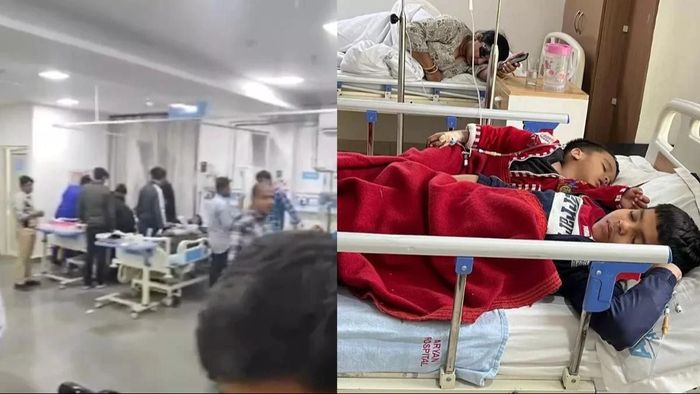Nearly 500 hospitalized in Delhi-NCR after consuming buckwheat flour
Around 500 individuals in Delhi-NCR have fallen sick after consuming adulterated buckwheat flour during the Maha Shivratri fasting period. The incident has sparked an investigation into food safety and quality control measures.

- Mar 09, 2024,
- Updated Mar 09, 2024, 3:44 PM IST
In a concerning incident around Delhi-NCR, nearly 500 people have been hospitalized after consuming food containing buckwheat flour, also known as 'Kuttu ka Atta,' during the ongoing fasting period for Maha Shivratri. Buckwheat flour is a common ingredient for those observing fasts during various festivities, including Navaratri.
The incident has affected individuals in different areas, showcasing the widespread impact of the consumption of adulterated buckwheat flour.
Approximately 200 students from two different hostels in Greater Noida experienced a deterioration in their health after consuming food made from buckwheat flour. The exact cause of the illness is under investigation.
Over 100 people fell ill in the Ranibagh area of outer Delhi after consuming buckwheat flour-based food. Around 140 individuals have been admitted to Bhagwan Mahavir Hospital, reporting symptoms such as vomiting and diarrhea. All affected individuals have been admitted to the emergency ward.
In Noida, 20 people including children were hospitalized after consuming 'pakodas' and 'puris' made from adulterated buckwheat flour. Doctors suspect food poisoning to be the cause.
Nearly 10 people from three households in Gurugram's Sector-14 police station area fell ill after consuming dumplings made with buckwheat flour during Mahashivratri. The Food Safety Department has initiated an investigation and collected samples from a local general store.
Buckwheat flour is derived from the seed of a flowering plant that does not belong to the grass family, unlike most cereals. It is not commonly grown in India, and Hindus favor it for fasting meals due to its non-cereal nature, which is typically avoided during fasts.
The incidents highlight the need for stringent food safety measures and quality control to prevent the occurrence of food poisoning during religious fasting periods, urging authorities to investigate and address the source of adulteration in buckwheat flour.